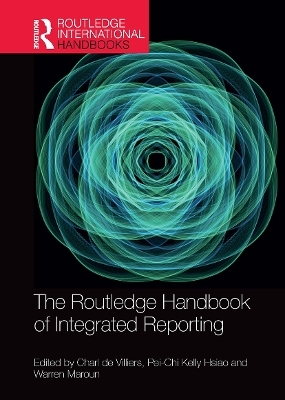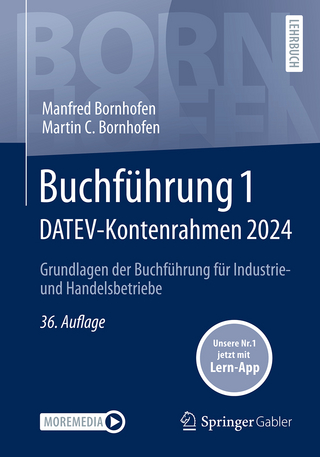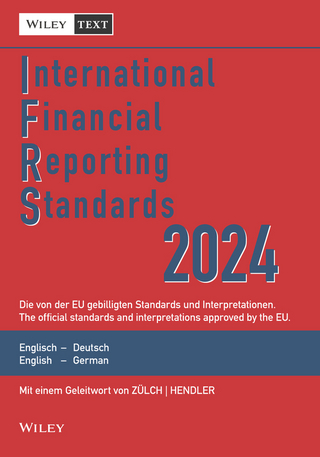
The Routledge Handbook of Integrated Reporting
Routledge (Verlag)
978-0-367-49900-6 (ISBN)
This timely handbook provides a current and comprehensive examination of integrated reporting, both practical and research-based. It offers insights and different perspectives from more than 60 authors, including representatives of the International Integrated Reporting Council, Integrated Reporting Committee of South Africa, professional bodies and audit firms, as well as leading academics in the fields of integrated reporting, sustainability reporting and corporate social responsibility.
This collected work provides an in-depth review of the development of integrated reporting, with a focus on the interpretation and guidance provided by the International Integrated Reporting Council. It encourages the development of new thinking and research topics in the area of integrated reporting (such as links between integrated reporting and reports focused on financial and corporate social responsibility matters), as well as showcasing how integrated reporting issues are seen and practiced in different parts of the world. The chapters include reviews of the most recent research, practitioner viewpoints, conceptual pieces, case studies and disclosure analyses.
Accessible and engaging, this handbook will be an invaluable overview for those new to the field or those who are interested in ensuring they are up to date with its developments, as well as those who are concerned with how to construct an integrated report.
Charl de Villiers is an expert on Integrated Reporting; Professor of Accounting, the University of Auckland, New Zealand; a professor at the University of Pretoria, South Africa; an adjunct professor at several other universities; and a research fellow at the Centre for Sustainability Management, Leuphana University Lüneburg, Germany. Pei-Chi Kelly Hsiao is a lecturer at the School of Accounting, Finance, and Economics, the University of Waikato, New Zealand. Her research interests include corporate disclosure, sustainability accounting, integrated reporting and investment decision-making. Warren Maroun is a professor at the School of Accountancy, University of the Witwatersrand, South Africa. He has served on integrated reporting working groups for the Independent Regulatory Board for Auditors and Integrated Reporting Committee of South Africa.
Introduction to the Routledge Handbook of Integrated Reporting - An overview of integrated reporting and this book, which entails different perspectives on a maturing field and a framework for future research Part 1: Evolution and Aspirations of Integrated Reporting 2. The International Integrated Reporting Council’s agenda of moving Integrated Reporting towards global adoption by 2025 3. The Integrated Reporting Committee of South Africa - On the balance of integrated reporting 4. The fourth wave is Integrated Reporting - A practitioner’s perspective 5. Integrated Reporting - The management accounting perspective of a professional accounting body 6. A case study on (and case for) integrated reporting and integrated thinking - Relevance to a not-for-profit professional accounting association Part 2: Critical Reflections on the Development of Integrated Reporting 7. The Framework - An example of what unfortunately happens when people who fail to comprehend the meaning of ‘accountability’ take control of an important reporting initiative 8. The IIRC’s journey - From sustainability to investor value 9. Integrated reporting - Reflections from a critical dialogic perspective 10. Are Integrated Reporting and IFRS competing frameworks? 11. From Skandia and the Church of Intellectual Capital to the mythical Church of the International Integrated Reporting Council Part 3: Current Integrated Reporting Knowledge and Future Research Opportunities 12. Archival research informing the dual objective of integrated reporting 13. Integrated reporting assurance - State of the art, current issues, future challenges and research opportunities 14. The impact of governance on integrated reporting - A literature review 15. Integrated reporting in the public sector Part 4: Implementation of Integrated Thinking and Reporting 16. Integrated thinking or integrated reporting, which comes first? 17. Managing and measuring social impact through Integrated Thinking and Reporting - The case of a European university 18. Integrated reporting preparers - Mode of cognition, stakeholder salience and integrated thinking in action 19. Integrated thinking for stakeholder engagement - A processing model for judgments and choice in situations of cognitive complexity Part 5: The Content of Integrated Reports 20. Integrated reporting adoption with no substantial changes - A case study of a large chemical producer 21. Is the integrated report a potential source of information on sustainable value creation? 22. Integrated reporting in practice - Practical insights into implementing integrated reporting 23. Integrated reporting and connectivity - Exploring connectiveness Part 6: Assurance and Investors’ Perspectives on Integrated Reporting 24. The journey to integrated report assurance - Different pathways to add credibility and trust to an integrated report 25. Integrated reporting and earnings calls - Virtuous circle or benchmarking effect? Preliminary insights 26. The possibility of achieving sustainability and financial stability through the influence of integrated reporting on investment decisions Part 7: Sustainable Development and Integrated Reporting 27. Making Sustainable Development Goals happen through integrated thinking and reporting 28. Integrated reporting and sustainable development goals in universities 29. Reporting on more than just natural capital 30. Integrated reporting and the need for specificity - Lessons from city-based greenhouse gas measurement and reporting
| Erscheinungsdatum | 22.04.2022 |
|---|---|
| Reihe/Serie | Routledge International Handbooks |
| Zusatzinfo | 37 Tables, black and white; 49 Line drawings, black and white; 3 Halftones, black and white; 52 Illustrations, black and white |
| Verlagsort | London |
| Sprache | englisch |
| Maße | 174 x 246 mm |
| Gewicht | 453 g |
| Themenwelt | Wirtschaft ► Betriebswirtschaft / Management ► Rechnungswesen / Bilanzen |
| Wirtschaft ► Volkswirtschaftslehre ► Ökonometrie | |
| ISBN-10 | 0-367-49900-2 / 0367499002 |
| ISBN-13 | 978-0-367-49900-6 / 9780367499006 |
| Zustand | Neuware |
| Haben Sie eine Frage zum Produkt? |
aus dem Bereich


